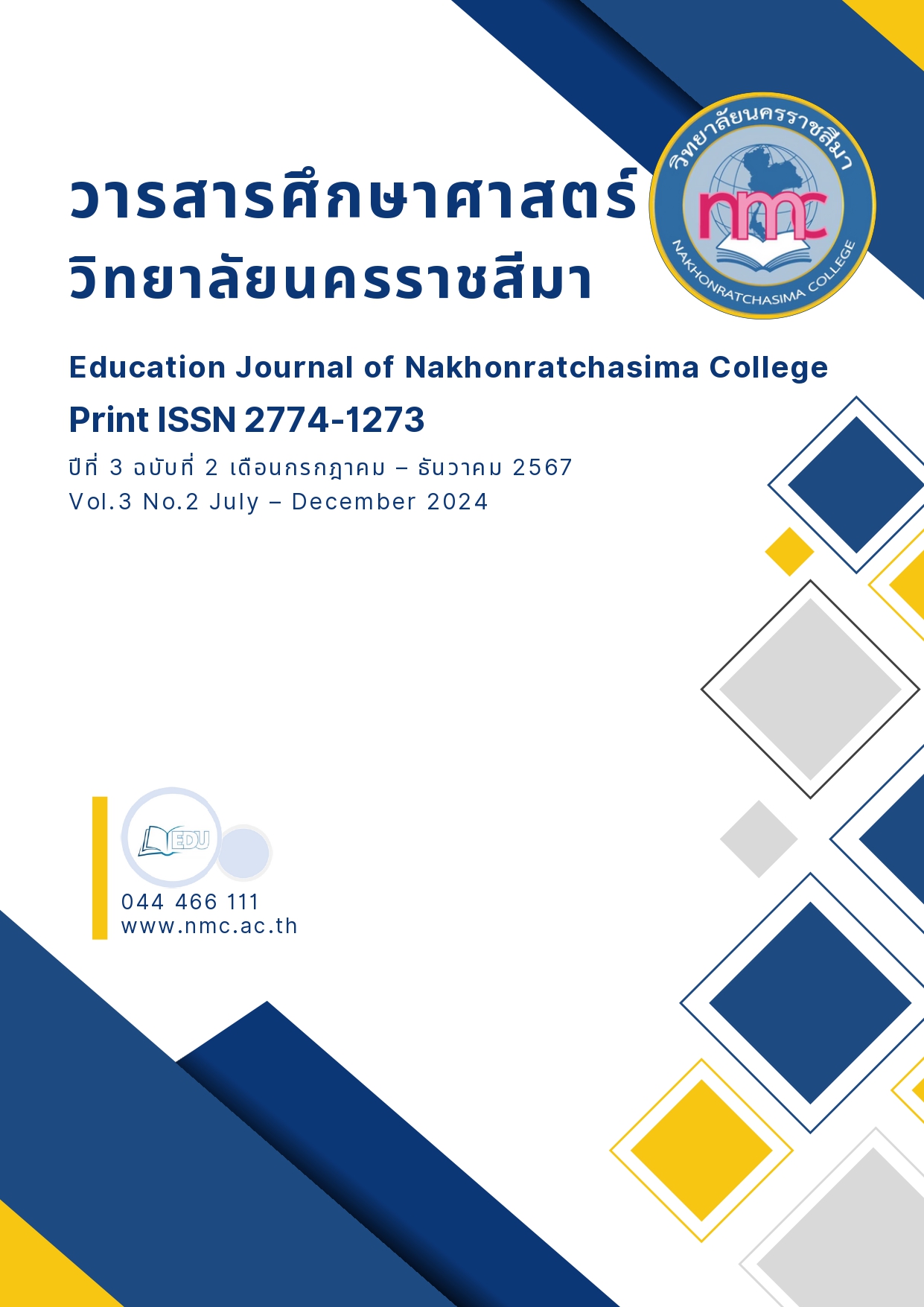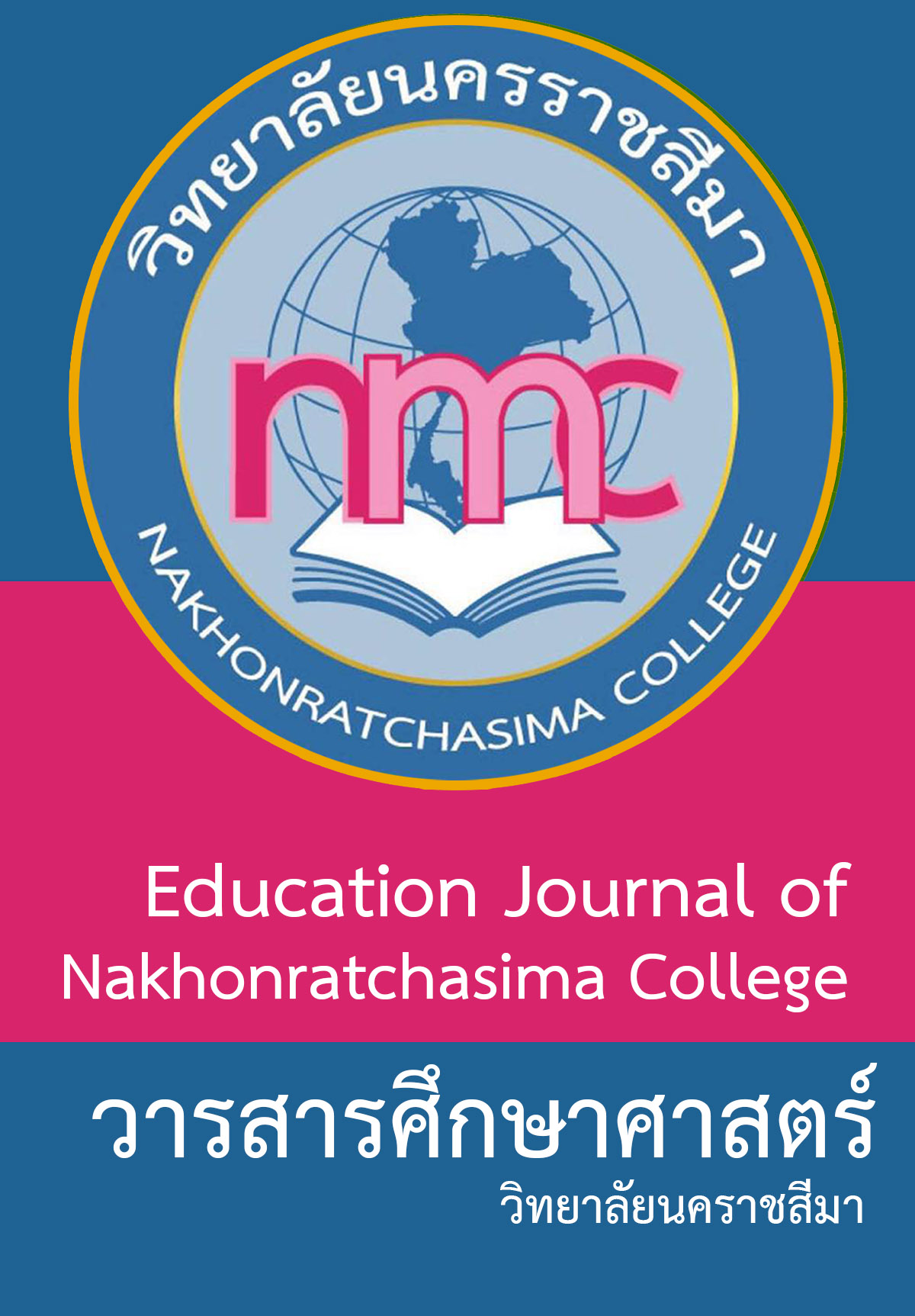Phramahautiti Tirawaro Study of Teaching to Develop Life Skills Based on the Four Paths of Spiritual Power in Citizenship Education for Lower Secondary Students at Phrapariyattidhamma School, General Educational, Area 12: A Case Study of Phrapariyattidhamma School at Sothonwara
Keywords:
Life Skills Development Teaching, The Four Paths of Spiritual Power, Citizenship, , Lower Secondary School StudentsAbstract
Teaching to Develop Life Skills Based on the Four Paths of Spiritual Power in Citizens Education for Lower Secondary Students at Phrapariyattidhamma School, Sothonwararam Temple, Chachoengsao Province. The objective is to promote essential life skills in students and enable them to apply these skills in their daily lives. The Four Paths of Spiritual Power consist of Chanda, Viriya, Citta, and Vimams. Chanda (Aspiration) is about developing a love for learning by creating satisfaction and inspiration in the learning process. This encourages students to be enthusiastic about their studies, have clear goals, and maintain determination in their studies. Viriya (Effort) involves organizing activities that cultivate persistence and perseverance in performing tasks. This builds the ability to solve problems and adapt to different situations through determined and resilient efforts. Citta (mindfulness) focuses on training students to have concentration and dedication in their learning. By maintaining focus and attention to their work, students can perform tasks efficiently and with high quality. Vimamsa (investigation) uses teaching methods that helps students learn to analyze and evaluate. This involves critical thinking and reasoning to find solutions to problems and enhancing decision-making and planning skills according to the Four Paths of Spiritual Power. This teaching method integrates moral principles and education, enabling students to establish a solid foundation for becoming responsible citizens in society through the application of the Four Paths of Spiritual Power. Students benefit by developing comprehensive life skills encompassing learning, work, and daily living. Moreover, it provides them with the ability to confidently face challenges and adapt to future challenges.
References
กมล โพธิเย็น. (2564). Active Learning: การจัดการเรียน รู้ที่ตอบโจทย์การจัดการศึกษาในศตวรรษที่ 22. วารสาร ศึกษาศาสตร์ มหาวิทยาลัยศิลปากร, 29(2), 22-28.
กริ่งกาญจน์ เจริญกุล. (2565). การเรียนรู้ความเป็นพลเมืองเชิงสหวิทยาการโดยใช้โครงงานเป็นฐานผ่าน ภาพยนตร์สั้น. วารสารนิเทศศาสตรปริทัศน์ ,26(2), 61-72.
โชคอนันต์ รักษาภักดีและคณะ. (2567). กระบวนทัศน์การบริหารกิจกรรมพัฒนาผู้เรียนแบบมีส่วนร่วมกับเด็กยุค Generation Z. วารสาร วิจัยสังคมและปริทัศน์, 47(2), 271222-271222.
ณิตาวรรณ โพธิ์ไหม. (2567). การพัฒนาชุดการเรียนรู้แบบศูนย์การเรียนเรื่องการสร้างคำในภาษาไทยของนักเรียนชั้นมัธยมศึกษาปีที่ 3 ที่ จัดการเรียนรู้แบบร่วมมือเทคนิค STAD โรงเรียนกุสุมาลย์ วิทยาคมอำเภอกุสุมาลย์จังหวัดสกลนครสำนักงานเขตพื้นที่การศึกษามัธยมศึกษา สกลนคร. วารสารวิจัยวิชาการ, 7(4), 389-411.
ทศทัศน์ บุญตา. (2565). การพัฒนาแผนการจัดการเรียนรู้โดยใช้แนวคิดการสอนการจัดระบบการทำงานเพื่อส่งเสริมพฤติกรรมการ ทำงานให้สำเร็จตามเป้าหมายของนักเรียนที่มีภาวะสมาธิสั้น. วารสารสถาบันวิจัยและพัฒนามหาวิทยาลัยราชภัฏบ้านสมเด็จเจ้าพระยา, 7(2), 227-237.
พรรณรายณ์ ทรัพย์แสนดี.(2562). การพัฒนาชุดกิจกรรมเพื่อเสริมสร้างความรู้เกี่ยวกับเด็กที่มีความต้องการพิเศษในชั้นเรียน รวมสำหรับนักศึกษาครู. วารสารวไลยอลงกรณ์ปริทัศน์, 9(3), 257-272.
พระแท็กซี่ อาทิตฺโต (แก้วกาหลง)และคณะ. (2564). พฤติกรรมการเรียนรู้สาระหน้าที่พลเมืองวัฒนธรรมและการ ดำเนินชีวิตในสังคมตามหลักอิทธิบาท 4 ในยุค NEW NORMAL ของนักเรียนชั้นมัธยมศึกษาตอนต้นโรงเรียนในสังกัดเทศบาลเมือง หนองคาย. Dhammathas Academic Journal, 22(3), 287-298.
สมเดช นามเกตุ. (2559). แนวทางการใช้หลักอิทธิบาท 4 เพื่อพัฒนาการเรียนรู้ของนักเรียนโรงเรียนพระปริยัติธรรมแผนกสามัญศึกษาเขต อำเภอเมือง จังหวัดหนองคาย. Dhammathas Academic Journal, 26(2), 52-63.
สิริโฉม พิเชษฐบุญเกียรติและ ภีราวิชญ์ ชัยมาลา. (2566). การส่งเสริมจิตสำนึกร่วมและจิตสาธารณะของนักศึกษาผ่านโครงการกิจกรรมเพื่อสังคมแบบมีส่วนร่วม. วารสารสหวิทยาการ วิจัย: ฉบับบัณฑิตศึกษา, 22(2), 77-91.
วารีรัตน์ แก้วอุไร. (2567). การวางแผนการสอน. (ออนไลน์). [แหล่งข้อมูล]. https://www.gotoknow.org/posts/66247.เข้าถึงข้อมูล (5 กรกฎาคม 2567).







